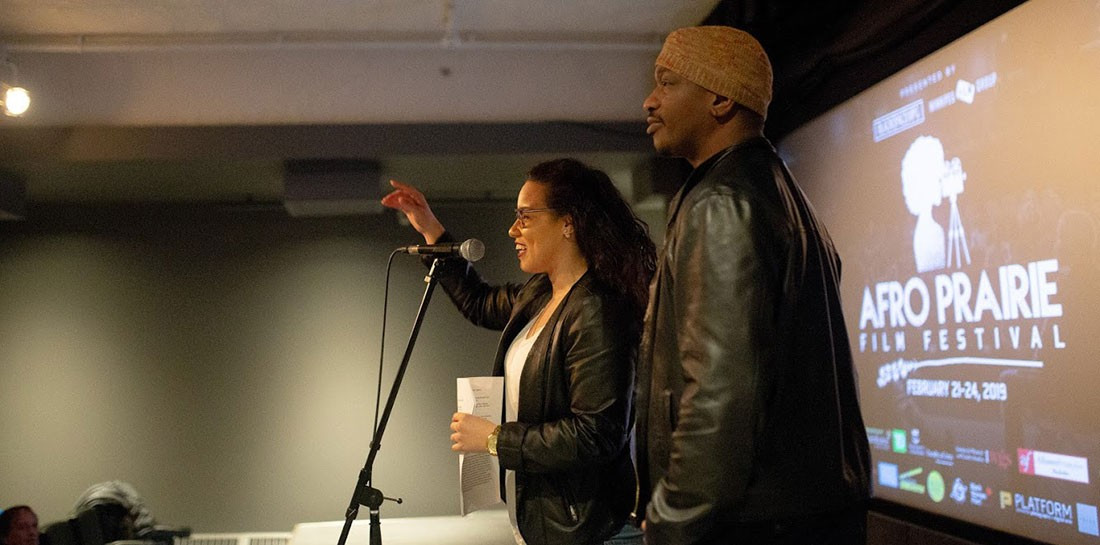Filmmaking ain’t for everybody
The hard truths surrounding diverse filmmaking in Canada
Spike Lee, Ava DuVernay and Ryan Coogler are successful Black directors, and their journeys can point to an idealistic future where all directors, regardless of race and gender, can have fruitful careers. However, filmmaking can be difficult, and a loving community, great mentorship and public events are essential to increase awareness of diverse filmmakers and present opportunities for growth.
This is Afro Prairie Film Festival’s goal for Black filmmakers across the Prairies and Canada. The four-day festival is in its third year and will open with a keynote address from director Alison Duke. In this free event, Duke will share experiences from throughout her 20-year career and speak about the importance of encouraging diversity in filmmaking.
A veteran in documentary filmmaking and music videos, Duke says she directed her first dramatic short film, Promise Me, for the festival.
“The film is inspired by true events from a documentary I made 13 years ago, The Woman I Have Become,” she says.
“The documentary was a commission project, and it focuses on eight African, Caribbean and Black women who were living with HIV in Toronto, and they tell their stories of the stigma and discrimination they face in the community.”
The short film focuses on a young woman in a similar scenario, and, although these topics can be difficult to discuss, Duke says filming both projects was enlightening in terms of what type of filmmaker she is.
Directors may “keep on remaking their first film in different ways, because they are attracted to a certain theme. I figured out that one thing I like is that I really like telling those true stories, something that has really happened in our community.”
Among health issues and internal social conflicts, one of these true stories that continues to affect filmmaking and the media field in general is racial and systemic oppression.
Duke reveals that, as a racialized director, there are few opportunities to fail and recover.
“You can watch any film by some of the most amazing white male directors, and though some of their films may be creative failures, they are still able to recover,” she says.
“You do not see that trend with racialized people, especially among Black women.”
Festival director Alexa Joy Potashnik agrees. However, although she says diverse representation in Hollywood and Manitoban films isn’t the best, there is still hope that concrete action will help rectify the lack of representation.
“What is very inspiring is how each year we receive such incredible shorts for our Shorts Award category from Black filmmakers across the country,” she says.
“I think with digital platforms and social media, people do not need to wait for an institution to give them an opportunity. People are making their art and getting it to an audience, so I really appreciate the creativity behind the films that are being submitted and how filmmakers are reshaping cinema and narratives on screen.”
Although there are hard truths that surround filmmaking, Duke ends with this encouragement: “I have made a career in this industry and have experienced success and built a business. If you can get a mentor and you are serious about it, you can have a great career.”
Afro Prairie Film Festival runs Feb. 19 to 23 at Cinematheque (100 Arthur St.). Showtimes available at blackspacewpg.ca.
Published in Volume 74, Number 18 of The Uniter (February 13, 2020)







